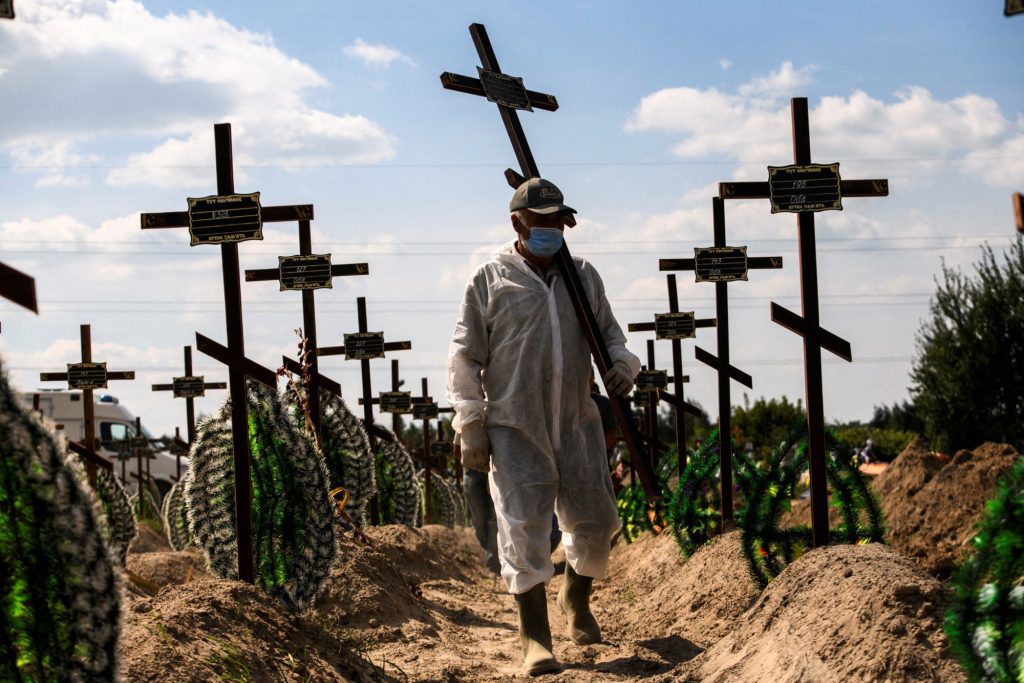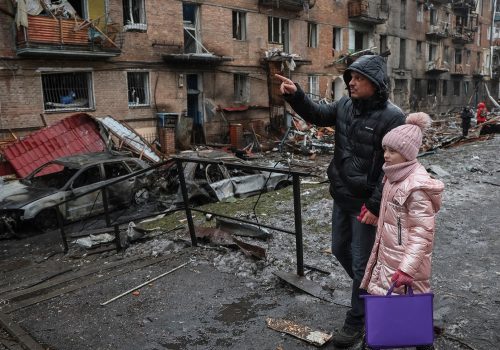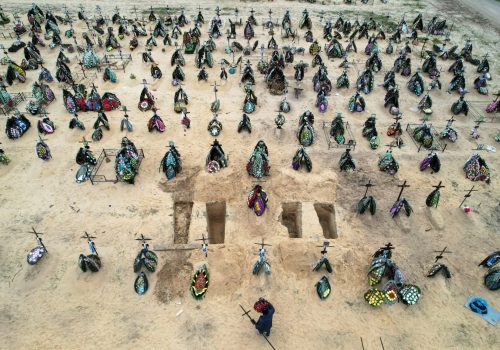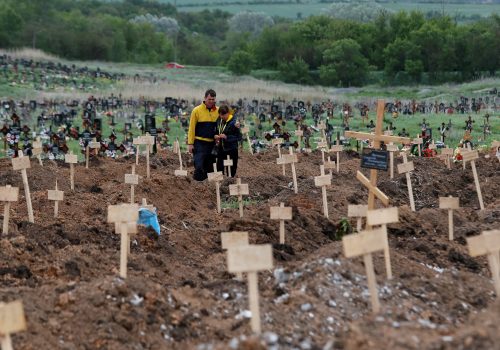The idea of a special tribunal for the crime of aggression against Ukraine was first proposed by Professor Philippe Sands immediately following the start of Russia’s full-scale invasion in early 2022. As the war now enters its second year, this initiative continues to gain momentum.
Since the invasion began, the concept of a special tribunal has been developed by various groups of international and Ukrainian legal experts. There have been several significant breakthrough developments in the past few months that have elevated this proposal from an academic proposition to the decision-making level and placed it firmly on the international agenda.
The crime of aggression is the underlying crime that triggers all other crimes. It is a leadership crime, for which those perpetrators who organized, decided on, and ordered aggression are tried. If plans for a special tribunal proceed, the crime of Russian aggression against Ukraine would be tried for the first time since the Nazi leadership was tried and convicted by the International Military Tribunal in Nuremberg following World War II.
Stay updated
As the world watches the Russian invasion of Ukraine unfold, UkraineAlert delivers the best Atlantic Council expert insight and analysis on Ukraine twice a week directly to your inbox.
It has already been established that the International Criminal Court (ICC) at present and for the foreseeable future does not have jurisdiction over Russia’s use of aggression against Ukraine, so a special tribunal is needed. ICC Prosecutor Karim Khan appears to be an isolated voice disputing this consensus. He argues for reforms to address the gap at the ICC, but has not been able to advance any practical and timely solution, keeping in mind the principle that justice delayed is justice denied.
So far, three options for a special tribunal have crystallized. The first is the institution-based option, which envisages a tribunal established on the basis of a treaty between Ukraine and the UN, following the adoption of the relevant UN General Assembly resolution. If this scenario does not work out, a tribunal could be set up on the basis of another international organization such as the Council of Europe, EU, or G7, preferably still with the backing of the UN General Assembly.
Another option is the treaty-based approach. This would involve setting up a tribunal on the basis of a multilateral international treaty, which would potentially be open to any state. There is also a hybrid option, which could see a specialized court based on Ukrainian law and jurisdiction, with some type of international element. At this stage, the institution-based option involving the UN is widely seen as optimal.
Eurasia Center events

When the idea of a tribunal was first introduced, it was supported by international law experts, civil society, and opinion leaders, but not by individual governments. This began to change after the Ukrainian government elaborated on its initial concept and started working with expert groups to develop the possible format of a future tribunal. Towards the end of 2022 and during the first months of 2023, the debate advanced to the inter-governmental level.
The first breakthrough came in November 2022, when European Commission President Ursula von der Leyen declared that the EU was proposing “to set up a specialized court, backed by the United Nations, to investigate and prosecute Russia’s crime of aggression.” At the same time, the French Foreign Ministry announced that it had started “working with our European and Ukrainian partners on the proposal to establish a special tribunal on Russia’s crime of aggression against Ukraine.” Dutch officials also confirmed that the Netherlands would be willing to house a new UN-backed tribunal to try Russia’s invasion of Ukraine.
In the first weeks of 2023, German Foreign Minister Annalena Baerbock noted the “disastrous” limitations on the ICC’s jurisdiction over the crime of aggression and called for a “special solution” to address what she termed as a gap in international law. Minister Baerbock also backed the immediate establishment of an investigating authority in The Hague to address Russian aggression.
Speaking in January, Dutch Prime Minister Mark Rutte said he could not accept that the international community would let the Russian invasion of Ukraine go unpunished, and confirmed Dutch officials are working with their Ukrainian colleagues and others to set up an aggression tribunal, preferably in The Hague. Meanwhile, Italian Foreign Minister Antonio Tajani stated, “if a special tribunal is created, we are not against it.”
The European Parliament adopted a resolution in January 2023 backing the establishment of a special tribunal. Also in January, the Parliamentary Assembly of the Council of Europe (PACE) voted for a resolution which confirmed that Russia’s invasion of Ukraine meets the definition of international aggression and reiterated its call “to set up a special international criminal tribunal for the crime of aggression against Ukraine, which should be endorsed and supported by as many states and international organizations as possible, and in particular by the United Nations General Assembly.”
Recent months have witnessed further practical steps toward the establishment of a special tribunal. In early 2023, a core group of more than 20 countries was created to develop plans for a tribunal, with the first in-person meeting taking place on January 26 in Prague. On February 2, European Commission President Ursula von der Leyen announced that an international center for the prosecution of the crime of aggression in Ukraine would be set up in The Hague.
It is evident from recent developments that initial calls for a special tribunal are now evolving toward practical implementation, with the various legal options taking more concrete form and being evaluated in terms of preference. This process will continue in the coming months as inter-governmental engagement on the issue deepens.
Dr. Irina Paliashvili is Chair of the Legal Committee at the US-Ukraine Business Council (USUBC) and International Rule of Law Officer at the IBA Rule of Law Forum.
Further reading
The views expressed in UkraineAlert are solely those of the authors and do not necessarily reflect the views of the Atlantic Council, its staff, or its supporters.

The Eurasia Center’s mission is to enhance transatlantic cooperation in promoting stability, democratic values and prosperity in Eurasia, from Eastern Europe and Turkey in the West to the Caucasus, Russia and Central Asia in the East.
Follow us on social media
and support our work
Image: A volunteer carries a cross for an unidentified Ukrainian victim killed by Russian troops in Bucha. September 2, 2022. (REUTERS/Vladyslav Musiienko)




